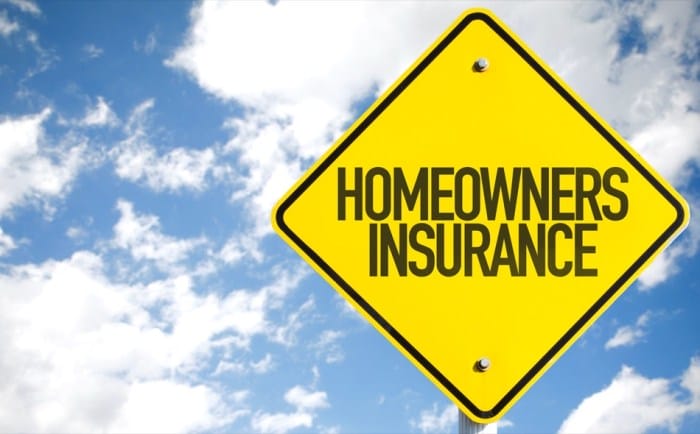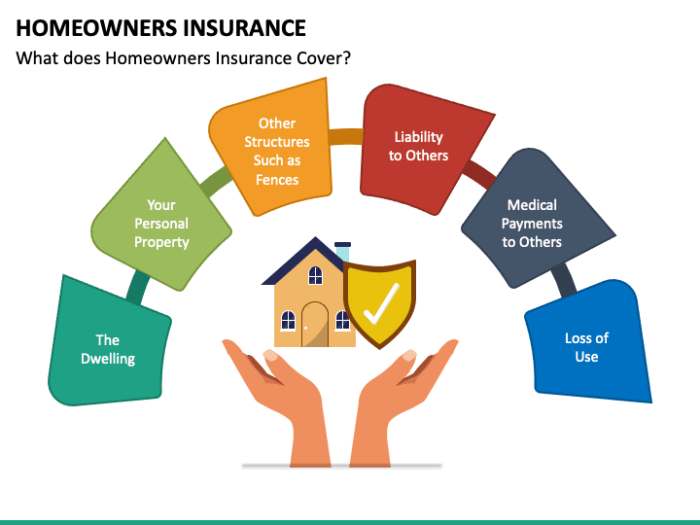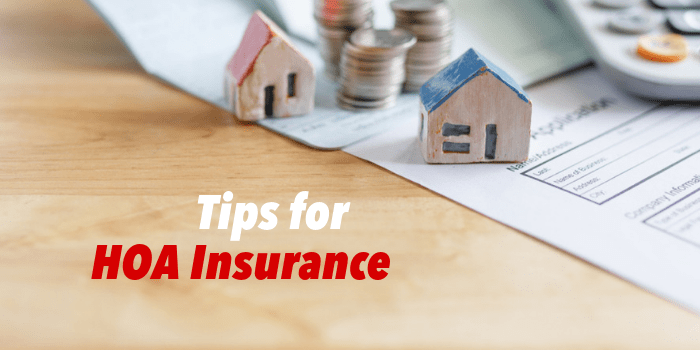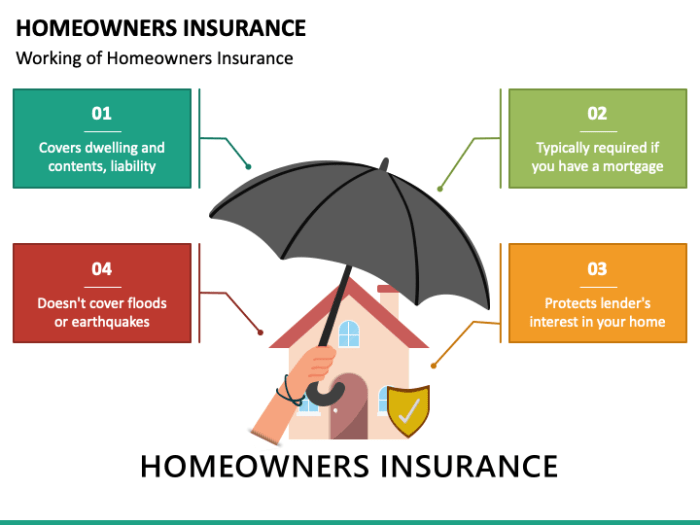In the realm of property ownership, homeowners insurance stands as a crucial safeguard against unforeseen events that may jeopardize the financial stability of residential property owners. As an insurance agent, your expertise in homeowners insurance is paramount in guiding clients towards securing their assets and ensuring peace of mind.
This comprehensive guide delves into the intricacies of homeowners insurance, providing valuable tips and insights to enhance your professional capabilities and elevate the customer experience.
From understanding the fundamentals of homeowners insurance coverage to navigating the complexities of risk assessment and underwriting, this guide equips you with the knowledge and strategies to effectively serve your clients. We will explore the significance of home safety measures in minimizing risks and claims, as well as the nuances of policy reviews and renewals.
Furthermore, we will delve into emerging market trends and industry developments, keeping you abreast of the evolving landscape of homeowners insurance.
Homeowners Insurance Basics

Homeowners insurance is a type of insurance that protects residential property owners against financial losses caused by unexpected events or perils. It is designed to provide coverage for the structure of the home, its contents, and additional living expenses in case the home becomes uninhabitable due to a covered event.
Homeowners insurance policies typically include coverage for various types of perils, such as fire, theft, vandalism, hail, windstorms, and certain types of water damage. It is important for homeowners to understand the specific coverage provided by their policy and to consider purchasing additional coverage if necessary.
Types of Coverage Typically Included in Homeowners Insurance Policies
Homeowners insurance policies typically include the following types of coverage:
- Dwelling coverage: This coverage protects the physical structure of the home, including its attached structures, such as garages and sheds.
- Personal property coverage: This coverage protects the personal belongings of the homeowner, such as furniture, appliances, clothing, and electronics.
- Loss of use coverage: This coverage provides reimbursement for additional living expenses, such as hotel bills or rent, if the home becomes uninhabitable due to a covered event.
- Liability coverage: This coverage protects the homeowner against claims of bodily injury or property damage caused to others by the homeowner or a member of the household.
Examples of Perils or Events Typically Covered by Homeowners Insurance
Homeowners insurance policies typically cover the following perils or events:
- Fire
- Theft
- Vandalism
- Hail
- Windstorms
- Certain types of water damage, such as damage caused by burst pipes or sewer backups
It is important to note that homeowners insurance policies may vary in terms of the specific perils or events that are covered. Homeowners should carefully review their policy to understand the coverage provided and to consider purchasing additional coverage if necessary.
Risk Assessment and Underwriting

In determining homeowners insurance premiums, risk assessment plays a crucial role. Insurance companies meticulously evaluate various factors to ascertain the level of risk associated with insuring a particular property.
The process of risk assessment begins with a comprehensive inspection of the property. This includes evaluating the construction materials, age of the property, condition of the roof, electrical and plumbing systems, and any safety features like smoke detectors and security systems.
Property Location and Crime Rates
The location of the property is a significant factor in determining the risk of natural disasters, theft, and vandalism. Areas prone to hurricanes, earthquakes, floods, or wildfires are considered high-risk zones and may result in higher premiums.
Claims History
Insurance companies review the claims history of a property to assess the likelihood of future claims. A property with a history of frequent or costly claims may be deemed higher risk and subject to higher premiums.
Occupancy and Usage
The occupancy and usage of the property also influence the risk assessment. Properties that are vacant or rented out are generally considered higher risk than owner-occupied properties. Additionally, certain businesses or activities conducted on the property may increase the risk and impact the premium.
Tips for Accurate Risk Assessment and Premium Determination
- Conduct a thorough inspection of the property, paying attention to construction materials, age, condition, and safety features.
- Gather detailed information about the property’s location, including proximity to natural disaster-prone areas and crime rates.
- Review the property’s claims history to identify any patterns or trends that may indicate elevated risk.
- Consider the occupancy and usage of the property, taking into account factors such as vacancy, rental status, and any business activities conducted on the premises.
- Utilize risk assessment tools and software to assist in evaluating and quantifying the risks associated with a property.
Coverage Options and Customization
Understanding the different coverage options available in homeowners insurance policies is crucial for agents to provide tailored recommendations to homeowners. Customizing a homeowners insurance policy ensures it aligns with the specific needs and preferences of the policyholder.
Homeowners insurance policies typically cover the dwelling, personal property, and liability. However, additional coverage options or riders can be added to enhance the policy’s protection. These optional coverages may include:
Optional Coverages
- Replacement Cost Coverage: This coverage pays to replace damaged or destroyed property with new items of like kind and quality, without deducting for depreciation.
- Extended Replacement Cost Coverage: This coverage provides additional protection beyond the policy’s limits, ensuring that the homeowner is fully compensated for the replacement cost of their property.
- Scheduled Personal Property Coverage: This coverage provides additional protection for valuable items such as jewelry, artwork, or collectibles, which may have higher value than the standard coverage limits.
- Loss of Use Coverage: This coverage reimburses the homeowner for additional living expenses incurred if their home becomes uninhabitable due to a covered loss.
- Personal Liability Coverage: This coverage protects the homeowner against legal liability for bodily injury or property damage caused to others.
By understanding the different coverage options available and customizing the policy accordingly, agents can ensure that homeowners have the protection they need to safeguard their property and assets.
Claims Handling and Assistance

The claims process is a crucial aspect of homeowners insurance. It is important for homeowners to understand the procedures for filing claims and the role of insurance agents in assisting them during this process. Effective communication between insurance agents and homeowners is essential for ensuring a smooth claims experience.
Filing a Claim
To file a claim under their homeowners insurance policy, homeowners typically need to contact their insurance agent or insurance company directly. They will be required to provide information about the incident, such as the date and time of the incident, the cause of the damage, and an estimate of the damages.
The insurance company will then assign a claims adjuster to handle the claim and assess the damages.
Role of Insurance Agents
Insurance agents play a vital role in assisting homeowners during the claims process. They can help homeowners understand the claims process, gather the necessary documentation, and communicate with the insurance company on their behalf. Insurance agents can also provide guidance and support to homeowners throughout the claims process, ensuring that their claims are handled fairly and efficiently.
Effective Communication
Effective communication between insurance agents and homeowners is crucial for ensuring a smooth claims experience. Insurance agents should be proactive in communicating with homeowners, keeping them informed about the status of their claim and any updates. They should also be responsive to homeowners’ inquiries and concerns, and be able to provide clear and concise explanations of the claims process.
Insurance Policy Review and Renewal

Homeowners insurance policies should be reviewed regularly to ensure adequate coverage and avoid gaps. A comprehensive review helps identify changes in the property, personal belongings, or family circumstances that may impact coverage needs. Regular reviews also allow homeowners to stay informed about policy updates, premium adjustments, and new coverage options.
Renewal Process and Considerations
Homeowners insurance policies typically renew annually. The renewal process involves sending a renewal notice to the policyholder, outlining the terms, conditions, and premium for the upcoming policy period. Homeowners should carefully review the renewal notice, paying attention to any changes in coverage, deductibles, or premium.
It is essential to compare renewal offers from multiple insurance companies to ensure the best coverage at a competitive price.
Communicating Renewal Terms and Conditions
Insurance agents play a crucial role in effectively communicating renewal terms and conditions to homeowners. Clear and transparent communication helps homeowners understand their coverage, rights, and responsibilities under the policy. Agents should provide a detailed explanation of any changes in coverage, deductibles, or premium, and address any questions or concerns the homeowner may have.
By fostering open communication, agents can ensure homeowners are well-informed and confident in their insurance coverage.
Customer Service and Relationship Building

Exceptional customer service is the backbone of retaining homeowners insurance clients. It’s not just about selling policies; it’s about fostering trust, nurturing relationships, and going above and beyond to meet clients’ needs. By prioritizing customer satisfaction, insurance agents can secure long-term loyalty and referrals.
Strategies for Building Strong Relationships
Building strong relationships with homeowners requires a proactive approach. Here are some effective strategies:
Personalized Communication
Tailor your interactions to each client’s unique needs and preferences. Use their preferred communication channels, whether it’s email, phone, or in-person meetings.
Responsiveness and Availability
Be prompt in responding to inquiries and requests. Make yourself accessible during convenient times, including evenings and weekends, to accommodate busy schedules.
Transparency and Honesty
Always be upfront and honest with your clients. Avoid jargon and technical terms that may confuse them. Provide clear explanations and ensure they understand the coverage and terms of their policies.
Proactive Outreach
Don’t wait for clients to reach out to you. Regularly check in to see if they have any questions or concerns. Provide updates on policy changes, industry trends, and safety tips.
Empathy and Understanding
Treat your clients with empathy and understanding, especially during difficult times, such as when they file a claim. Show genuine concern for their well-being and go the extra mile to assist them.
Examples of Proactive Measures to Enhance Customer Satisfaction
Claims Assistance
Offer assistance throughout the claims process, from filing the claim to settlement. Provide clear guidance and support to ensure a smooth and hassle-free experience.
Regular Policy Reviews
Conduct regular policy reviews to ensure that clients’ coverage remains adequate and up-to-date. Make recommendations for adjustments based on life changes, such as home renovations or new purchases.
Home Safety Tips
Share valuable home safety tips and resources to help clients protect their properties and prevent losses. This demonstrates your commitment to their well-being and helps strengthen the relationship.
Community Involvement
Engage in local community activities and events. This shows your commitment to the community and establishes you as a trusted advisor.
Customer Feedback
Regularly seek feedback from clients to identify areas where you can improve your service. Use this feedback to refine your approach and enhance customer satisfaction.
Market Trends and Industry Developments

The homeowners insurance landscape is constantly evolving, driven by technological advancements, changing consumer preferences, and regulatory shifts. Staying abreast of these trends is crucial for insurance agents to remain competitive and provide relevant solutions to their clients.
Emerging Trends and Developments
- Digital Transformation: The insurance industry is embracing digital technologies to enhance customer experience, streamline processes, and improve efficiency. Agents can leverage online platforms, mobile apps, and data analytics to engage with clients, provide personalized quotes, and expedite claims processing.
- Usage-Based Insurance: Pay-as-you-drive and smart home monitoring programs are gaining traction. These policies reward homeowners for adopting risk-reducing behaviors, leading to potential savings on premiums. Agents can educate clients about these options and help them choose the most suitable coverage.
- Climate Change and Catastrophic Events: The increasing frequency and severity of natural disasters have prompted insurers to reassess their risk models and coverage offerings. Agents need to stay informed about these changes and guide clients in selecting appropriate coverage limits and endorsements.
- Cybersecurity and Data Privacy: As homeowners increasingly rely on smart devices and home automation systems, cybersecurity risks are becoming more prevalent. Agents can offer cyber insurance coverage and advise clients on implementing strong security measures to protect their personal data.
Staying Updated and Incorporating Trends
To stay updated on market trends and industry developments, insurance agents can:
- Attend industry conferences and webinars: These events provide opportunities to learn about the latest products, services, and regulatory changes.
- Subscribe to industry publications and blogs: Stay informed about market trends, legal updates, and best practices.
- Network with peers and colleagues: Share insights and experiences to gain a broader perspective on the industry.
- Monitor regulatory changes: Stay up-to-date with regulatory developments that may impact homeowners insurance policies and coverage.
Impact on Premiums and Coverage
Market trends can significantly impact homeowners insurance premiums and coverage options:
- Increased Catastrophic Events: As natural disasters become more frequent and severe, insurers may adjust premiums to reflect the elevated risk. Agents can help clients understand these changes and explore mitigation strategies to reduce their premiums.
- Technological Advancements: The adoption of smart home devices and usage-based insurance programs can lead to lower premiums for homeowners who implement risk-reducing measures. Agents can guide clients in selecting coverage options that align with their risk profile and budget.
- Cybersecurity Risks: The growing prevalence of cyberattacks and data breaches has led to increased demand for cyber insurance coverage. Agents can educate clients about these risks and offer appropriate coverage options to protect their digital assets.
Continuing Education and Professional Development

Insurance agents have a responsibility to stay knowledgeable and competent in their field to provide the best possible service to their clients. Continuing education and professional development are essential for agents to keep up with the latest industry trends, regulations, and best practices.Insurance
agents can enhance their skills and expertise through various resources and opportunities, such as attending conferences, workshops, and webinars, taking online courses, and reading industry publications. Additionally, many insurance companies offer in-house training programs and resources to support their agents’ professional development.
Creating a Personalized Professional Development Plan
To maximize the benefits of continuing education and professional development, insurance agents should create a personalized plan that aligns with their career goals and areas of interest. This plan should include:
- Identifying Areas for Improvement: Agents should assess their strengths and weaknesses to identify areas where they need to improve their knowledge and skills.
- Setting Goals: Agents should set specific, measurable, achievable, relevant, and time-bound goals for their professional development.
- Choosing the Right Resources: Agents should research and select the resources and opportunities that best fit their learning style, schedule, and budget.
- Tracking Progress: Agents should track their progress towards their goals and make adjustments as needed.
Legal and Regulatory Compliance

Staying compliant with legal and regulatory requirements is crucial for insurance agents selling homeowners insurance. Understanding and adhering to these regulations helps protect consumers, ensure fair practices, and maintain the integrity of the insurance industry.
Staying Up-to-Date with Changing Regulations
The regulatory landscape is constantly evolving, so staying informed about updates is essential. Insurance agents should regularly review industry publications, attend seminars and workshops, and consult with legal experts to stay current with changing laws and regulations.
Resources for Compliance
Numerous resources are available to assist insurance agents in maintaining compliance. These include:
- State Insurance Departments: Provide information on state-specific regulations and offer guidance to agents.
- National Association of Insurance Commissioners (NAIC): Develops model laws and regulations that states can adopt.
- Insurance Trade Associations: Offer educational programs, compliance resources, and advocacy for agents.
- Legal Counsel: Consult with legal experts for advice on complex regulatory issues.
By utilizing these resources, insurance agents can stay informed and ensure compliance with all applicable laws and regulations.
Last Word
As an insurance agent, your role extends beyond merely selling policies; you are a trusted advisor, a knowledgeable guide in the realm of homeowners insurance. By embracing the tips and insights provided in this comprehensive guide, you will not only enhance your professional capabilities but also forge enduring relationships with your clients, built on trust and exceptional service.
In the ever-changing landscape of homeowners insurance, your commitment to knowledge, expertise, and customer-centricity will set you apart as a true professional, ensuring your clients’ unwavering confidence in your guidance.
FAQ Corner
Q: What are the key factors that insurance companies consider when evaluating risk for homeowners insurance?
A: Insurance companies assess various factors to determine risk, including the property’s location, age, construction type, claims history, and proximity to potential hazards like fire stations or bodies of water.
Q: How can insurance agents effectively communicate renewal terms and conditions to homeowners?
A: Clarity and transparency are crucial. Provide a detailed explanation of changes in coverage, premiums, and any new terms or conditions. Encourage homeowners to ask questions and address any concerns they may have.
Q: What proactive measures can insurance agents take to enhance customer satisfaction?
A: Regularly check in with clients to ensure their needs and coverage are still aligned. Offer proactive advice on home safety and loss prevention measures. Respond promptly to inquiries and claims, providing exceptional customer service throughout the policy lifecycle.



